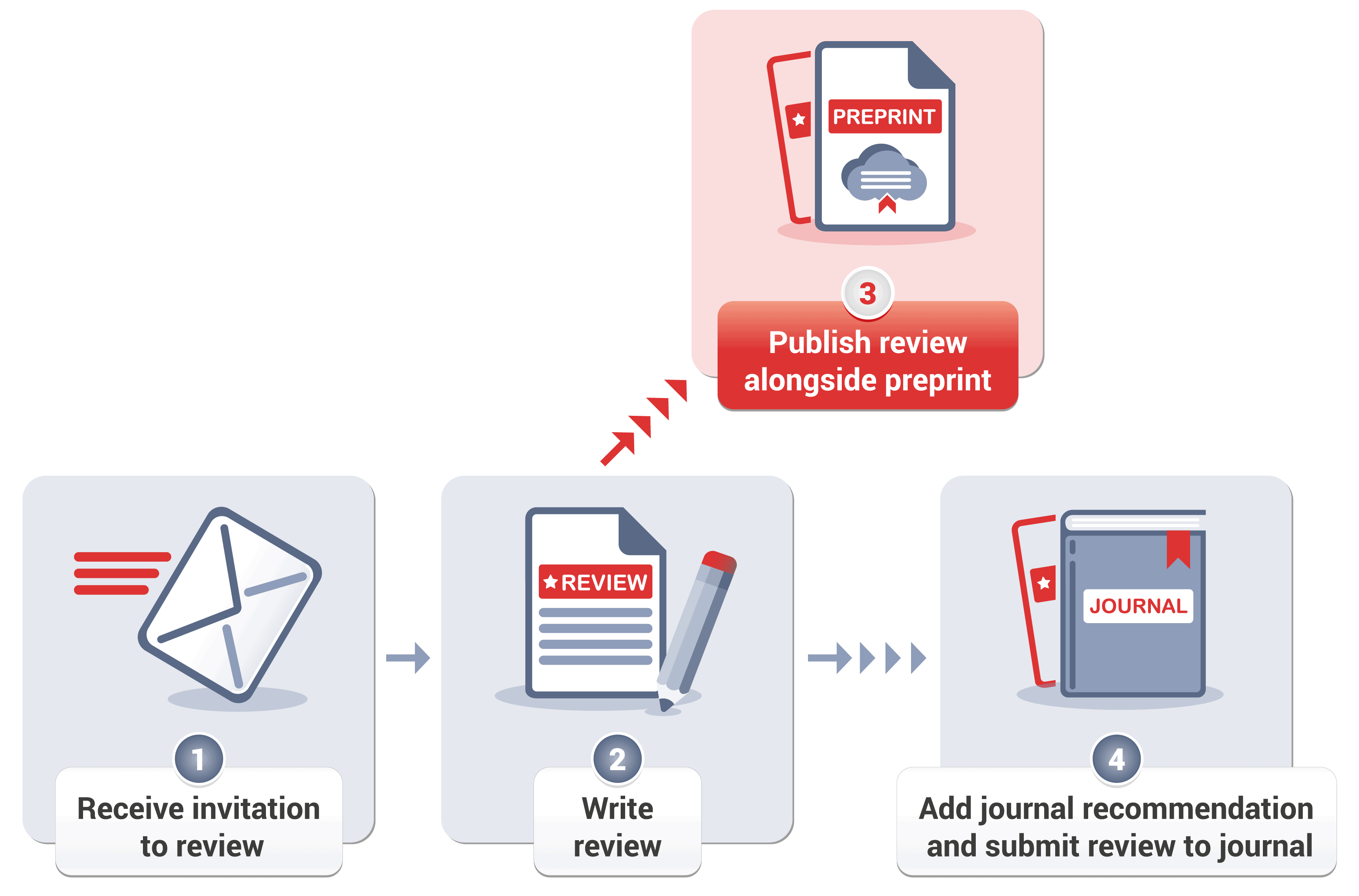At AfricArXiv, we are proud supporters and endorsers of the ‘Publish Your Reviews’ campaign by ASAPbio.
[As an African researcher or a non-African researcher reviewing a manuscript by an African author] You can share your reviews also via AfricArXiv to any of our affiliated preprint repositories. Your reviews will be citable and shared with an open license (CC BY) so that you can keep a public track record of your accomplishments and contributions to your scholarly research field as an expert. All published reviews will automatically be added to your ORCID profile via CrossREF.
Read below more about the Publish Your Reviews campaign by ASAPbio:
Today, we’re excited to launch Publish Your Reviews, an initiative encouraging reviewers to post their comments alongside the preprint versions of articles. We invite all researchers interested in promoting more open dialog around preprints to sign the following pledge:
When a journal invites me to review an article that is available as a preprint, I will publish my review alongside the preprint. I will make sure that the published version of my review does not include the journal name, a recommendation for publication, or other confidential information.
Why post reviews publicly?
Publishing peer reviews alongside preprints provides readers with additional context on preprints, pointing out strengths, weaknesses, and open questions. It also enables reuse of reviews, thereby reducing burden on editors and reviewers. In addition, it brings scientific discussions into the public domain, catalyzing a culture of open scholarly debate. Finally, publishing peer reviews surfaces the work of reviewers to a broader audience, promoting greater recognition for this important work.
ASAPbio’s Vice President James Fraser has been posting review reports as a matter of lab policy for years. “As we continue to make science more open,” he said, “exposing the process of iteratively improving manuscripts through peer review is more important than ever. Writing constructive peer reviews takes time and effort – and should also be recognized as a scholarly output. Increasing transparency in peer review is timely and exciting.”
“Early career researchers are naturally early adopters of revolutions in the academic culture,” said Gracielle Higino, a Postdoctoral Research and Teaching Fellow at the Canadian Institute of Ecology and Evolution. “Yet, we often don’t have the structure (funds, material, leadership, training) to actually practice what we think is good for science, such as reproducibility, pre-registration or open peer review […] I want to be a piece of the infrastructure that benefits the next generation of ECRs, so they feel like they are contributing to a bigger movement when reviewing preprints.”
Along with individual pledge signatories, Publish Your Reviews is pleased to have the support of several publishers, preprint servers, peer review platforms, funders, and related organizations. “DORA [The Declaration on Research Assessment] is delighted to support the Publish Your Reviews initiative,” said its Chair, Stephen Curry. “Since it promotes both the work of reviewers and the use of preprints, the initiative aligns well with DORA’s advocacy for the inclusion of a wide range of outputs in research assessment processes.”
Prachee Avasthi, ASAPbio’s President, is also Co-Founder, Chief Scientific Advisor, and Incoming CSO at Arcadia Science, which encourages preprint reviews. “The scientific literature is expanding rapidly,” she said. “A sustainable, scalable ecosystem involves a broader range of scientists in making research more rigorous and this is best done in ways that minimize wasted effort. At Arcadia Science, to make our contributions to review maximally reusable by authors and useful to readers, we ask our scientists to comment publicly on preprints.”
Publish Your Reviews supporters
- AfricArxiv
- Arcadia
- Authorea
- BEM
- bioRxiv
- CLACSO-FOLEC
- COS
- DORA
- eLife
- Bill & Melinda Gates Foundation
- GigaScience Press
- HHMI
- Hindawi
- JMIR Publications
- KFG
- MBoC
- OASPA
- PeerRef
- PLOS
- PREreview
- PubPeer
- Qeios
- QSS
- Redalyc
- ResearchSquare
- SciELO
- ScienceOpen
- SocArXiv
What are good practices for publishing reviews?
Publishing reviews is not yet common practice, and some authors may have concerns based on their negative experiences with traditional peer review. Based on feedback from community members, journals, and other stakeholders, we’ve created some resources to help make this practice as constructive as possible.
These include recommendations for reviewers on how to write and publish their reviews, a sample policy for journals to consider implementing, and FAQs for all stakeholders.

